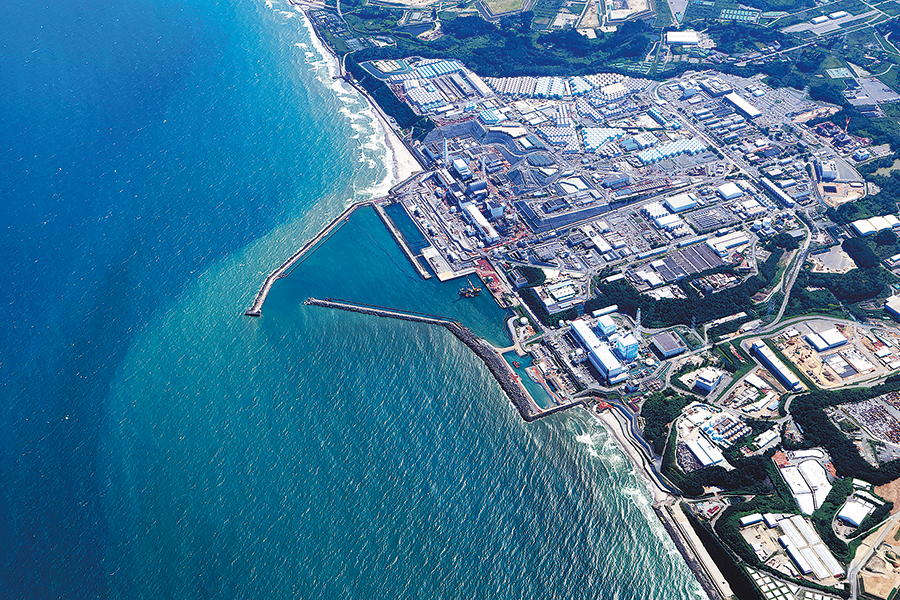Japan urged to ensure nuclear safety measures
Latest Fukushima leak raises concerns, exposes lapses in crisis management
By JIANG XUEQING in Tokyo | CHINA DAILY | Updated: 2024-02-23 07:14

A radioactive water leak at the wrecked Fukushima Daiichi Nuclear Power Plant earlier this month has caused anxiety in Japan and abroad. The leak will also hinder completion of the plant's decommissioning.
Ken Saito, Japan's minister of economy, trade and industry, summoned Tomoaki Kobayakawa, president of the Tokyo Electric Power Company, or TEPCO, operator of the crippled power utility, to his office on Wednesday and urged the firm to treat the incident as a serious management issue and ensure thorough safety measures.
Furthermore, Saito requested an analysis to identify any common factors contributing to the incident. He also urged the utilization of digital technology to prevent human errors, Japanese public broadcaster NHK reported.
On Feb 7, TEPCO informed the International Atomic Energy Agency, or IAEA, that water containing radioactive materials was found to have leaked from a cesium absorption tower at the plant.
TEPCO calculated that the leakage totaled around 5.5 cubic meters of water containing an estimated 0.022 terabecquerel of radioactive substances, according to the IAEA.
The water was assessed to have leaked from a valve left open during cleaning work at the absorption tower. Kobayakawa apologized and said this was an issue that should not have happened.
After his meeting with the minister, Kobayakawa said that TEPCO will consider effective measures with the help of external experts to prevent errors without human intervention.
Several safety incidents have occurred repeatedly at the plant. On Oct 26, TEPCO said two male workers in their 20s and 40s were hospitalized after being exposed to nuclear-contaminated water while cleaning piping at a water filtration facility at the plant.
During the operation, a hose used to transfer nuclear-contaminated water to a tank went loose, which led to approximately 100 milliliters of radioactive water being leaked, The Asahi Shimbun reported.
"At the site of nuclear-contaminated water treatment, various accidents are possible. … Many things are unpredictable," Masashi Goto, a former nuclear power plant engineer, said.
"Therefore, TEPCO should indeed take measures to prevent accidents at the site, and there should be a high level of vigilance. However, technically speaking, this is also very difficult to achieve."
Citing the case of workers who came into contact with liquid containing radioactive materials, Toshihiko Sasaki, a Chiba resident, expressed grave concern about such incidents.
He said people cannot trust TEPCO because the company manipulated information and reported false data.
In handling nuclear-contaminated water, accidents have occurred repeatedly, fully exposing the chaotic and disorderly internal management of TEPCO, a spokesperson of the Chinese embassy in Japan said on Feb 8.
Ineffective supervision
The accidents also demonstrate the inadequate and ineffective supervision measures by the Japanese government and once again prove the lack of long-term reliability of nuclear water treatment equipment, highlighting the need for international supervision, the spokesperson said.
Moreover, Japan has so far dumped approximately 23,400 cubic meters of nuclear-contaminated water from the Fukushima plant into the ocean since August. The fourth round of discharge is scheduled to commence in late February.
The plant suffered a triple meltdown during an earthquake and ensuing tsunami on March 11, 2011.
The Chinese embassy spokesperson stressed that the discharge of nuclear-contaminated water from the Fukushima plant into the sea concerns the health of all mankind, the global marine environment and international public interests.
"We once again earnestly urge Japan to take seriously the concerns of neighboring countries and the international community, engage in sincere consultations with relevant stakeholders, fully cooperate in establishing effective international monitoring arrangements with substantive participation from stakeholders, and handle nuclear-contaminated water in a scientific, safe, and transparent manner," the spokesperson said.
jiangxueqing@chinadaily.com.cn
























